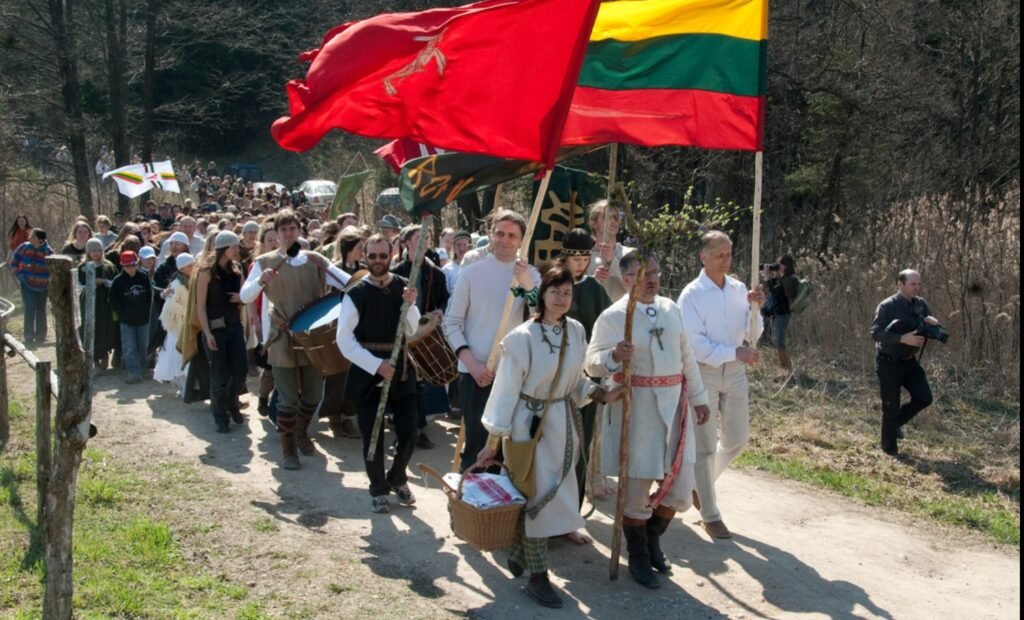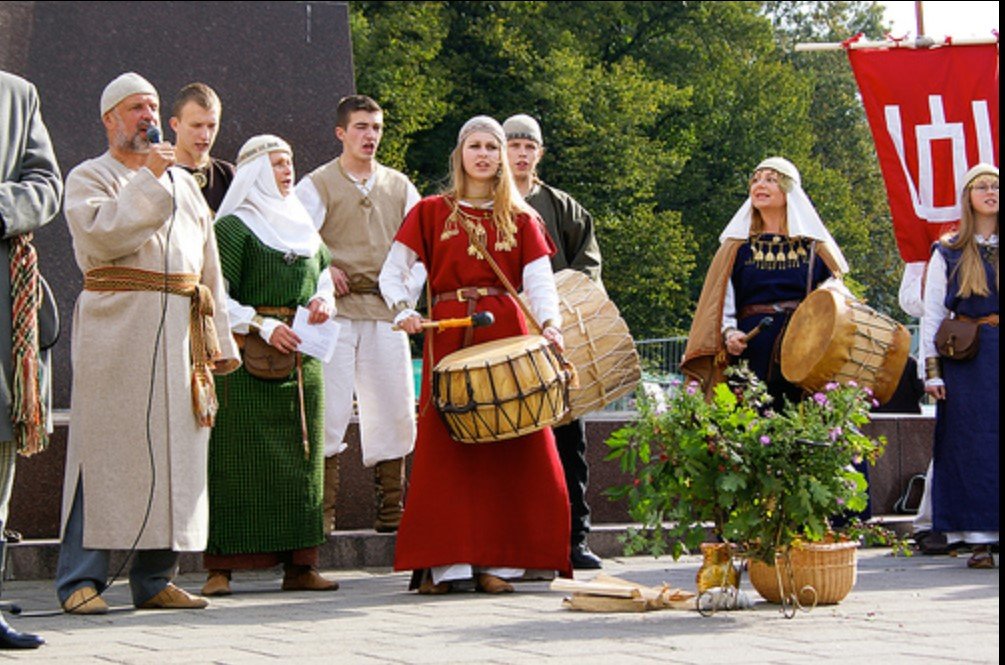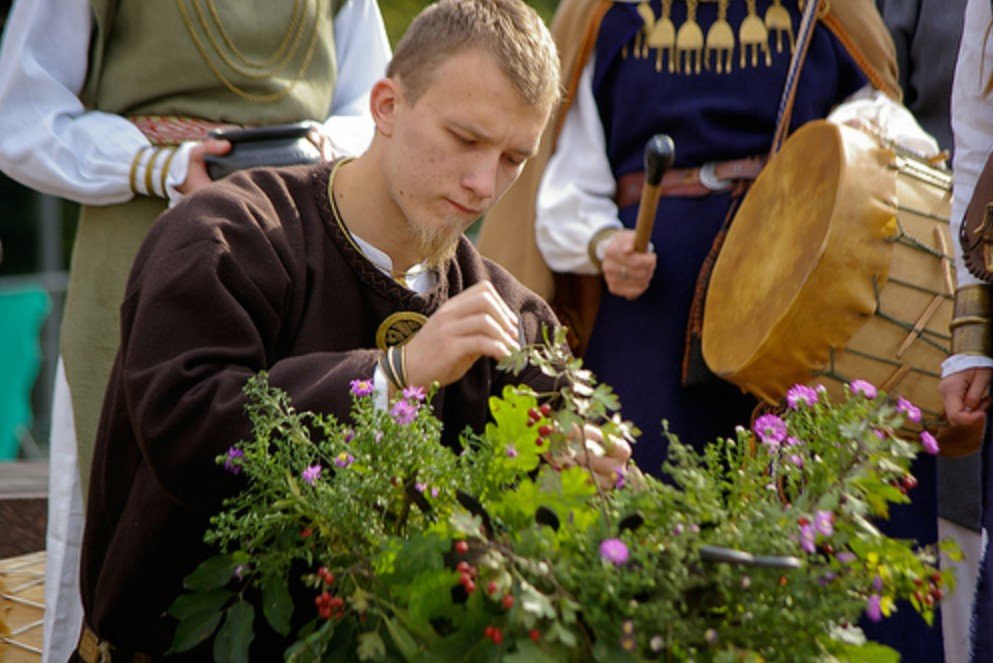
Avatar – this is the first comparison that came to mind after deliberations and voting in Seimas on granting state recognition to the ancient Baltic religious community Romuva, where speakers chosen by the TS-LKD blasted through geopolitical, legal and ideological means, employing heavy weaponry – a letter from the Bishops’ Conference, the ambition of the Romuvans to obtain a higher organisation status.
And blast it they did. The result was accompanied by a victorious “Thank God” from neophyte Rasa Juknevičienė.
Pagan Romuva will only be able to attempt again in a decade, most likely hope that, as one young Romuvan wrote, those, who still recall how Romuva was founded depart from this world, just not to Abraham. Neophytes, in other terms – fanatics, both in religion and in politics are always fierce.
I admit, I thought that the Romuvans will achieve their goal because they had already overcome one of the major barriers on the path – the Ministry of Justice, had the support of the ruling coalition, including recognised Baltic culture researcher E. Jovaiša. Unfortunately, it seems like they lacked six votes.
Why did the Farmer-Greens, having unanimously supported the project prior to the vote and in earlier discussions, not make certain that the vote will favour the Pagan Romuva? Did they fear the letter from the Bishops’ Conference? Were unwilling to clash with the Catholic hierarchy? One way or another, the decisive elections aren’t all that far.
You can think about it all sorts of ways, but it is now in the past and the Romuvans were left alone on the ice. And so, they slip and slide around on it, demeaned and insulted. It was namely the absence of goodwill and disdain that emerged from their opponents’ mouths. Disdain for whom? To put it bluntly – for their predecessors.

Why the Pagan Romuva failed to get the vote?
If there were no Romuvans founded in the Brezhnev era and alongside them – non-conformist public movements, then there would have been no Sąjūdis. Prof. Vytautas Landsbergis would not have become the factual head of state of Lithuania and some of the diligent ones on the right-wing would perhaps still be sitting in executive committees.
This is not an artificial overestimation of Romuva. The truth is simple – a large part of the people had come to terms with the occupation, taught their children to adapt, find ways to create relative personal welfare and watch dissidents, who were waking their conscience, with wariness. No one wanted to sacrifice themselves any longer.
This public attitude appealed to the Soviets. And they greatly disliked the echoes from Prague in 1968. Romuva was a unique, oriented toward authentic Lithuanian Baltic culture echo of a multi-branched European movement for freedom. A generation grew up in an unformalized field of ideas, which maintained the vitality of Sąjūdis. The Romuvans supported the right-wing after independence as well, even when they would come to doubt prior to elections, whether it is worth it.
I knew a number of the supporters of the observant (religious) part of Romuva, who would always make their final decision to be “for Landsbergis.” Honestly enough, this continued to nowadays. Until they were struck.
Who created Romuva?
Member of Seimas Žygimantas Pavilionis struck without remorse: “The Russian KGB did their all since Soviet times that paganism would grow in Lithuania.” He implies that Romuva was a KGB project. And further: “At the moment, those, who are presenting this project, they are simply enacting Kremlin instructions.” What else could this be if not a conscious insult, a spit upon the generation, whom the politician does not comprehend, a phenomenon he neither understands nor wants to come to understand?

Of course, I need not react to this acutely. For example, saying that he is a young politician (though it is unclear, where that youth ends), perhaps he’s not quite right. But Ž. Pavilionis knows, what he is saying and to whom it is addressed, thus the response must be equivalent.
To my knowledge, (I do not dismiss that there are those more in the know), Romuva was never (especially in the times of King Mindaugas in 13 century) a project of the KGB. The Pagan Romuva, just like all movements of the increasingly free spirit, hikers, for example, were the heralds of national self-consciousness, hated no less by the soviet government than the Lithuanian Catholic Church Chronicle’s publishers and distributors. Finally, it is unethical to measure persecutions. What is important is what is actually being done.
I am a witness and participant when through Romuvan channels, emigre Lithuanian lecture flooded into Lithuania and on the contrary – dissident lecture into the free world, this including the famous Catholic Church Chronicle.
Little bit more diplomatic words could have been nice
When discussing the Pagan Romuva project in Seimas, its opponents should have recalled this and chosen a very different tone of speech, more diplomatic words, not to even mention refraining from obvious lies related to the KGB. Furthermore, there are people, for whom decades in the Romuva movement were not just some exotic hobby, but the meaning of life. It is unfortunate that the project’s critics did not grasp this.
It is logical to ask: who is the author of this article? Neopagan? Christian? Something else? I am a practicing Catholic. I found my faith by independently researching the origins of Christianity. In the environment of Romuva and other movements, I became a conscious member of the nation. It was the typical road of a number of those from my generation.

I do not criticise the letter of the Bishops’ Conference regarding the Romuvans. I understand the arguments and logic. The form of presentation (and in this case, it is very important) could have been better thought out. In part, watching Romuvan celebrations and ceremonies, I noticed that youth enjoy it because a positive perception of life is formed, a sensitive connection to nature. The Romuvans nurture an active, not just book-based connection to the nation’s traditions. The values propagated by Romuva are human and only related to good.
A piece of advice
I have had the opportunity to be convinced many times that both young and old eagerly take interest in the pre-Christian period of Pagan Lithuania, which no longer can be comprehended based on the traditional attitude of Pagans – Christians. By the way, this has been done for a long time, starting at the academic international level and finishing with massively attended celebrations.
Lithuanian politicians, who call themselves conservatives, somehow fail to see it or perhaps just pretend they don’t. I would advise the TS-LKD board to cease wandering around all puffed up and, after reflecting on what happened, to write up an apology to their predecessors.


Be the first to comment